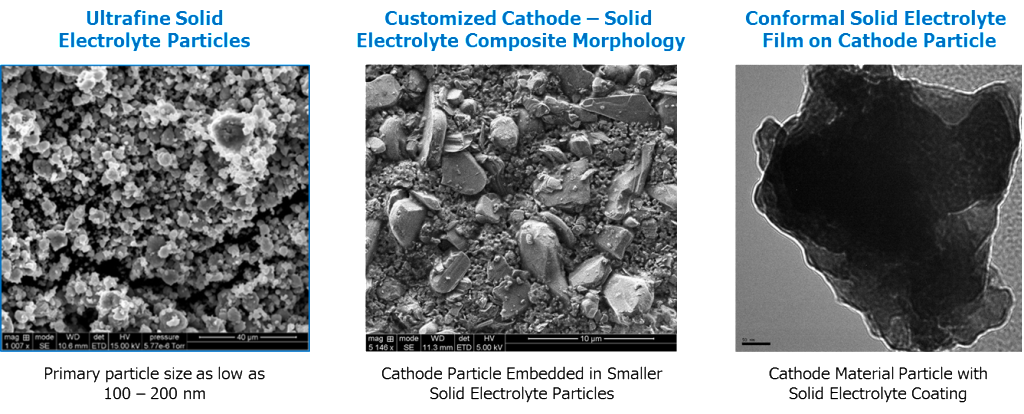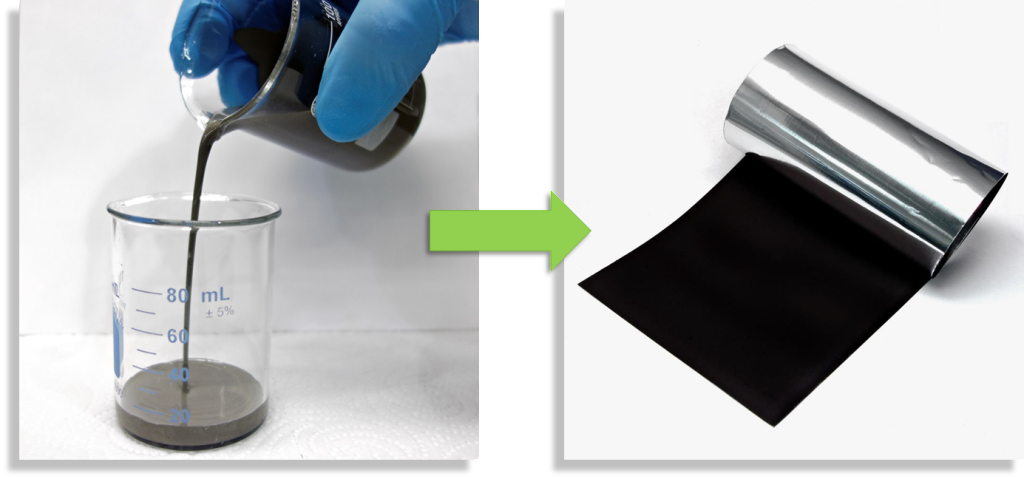NEI Expands Selection of Materials for Lithium-ion & Sodium-ion Batteries
January 13, 2022
 Somerset, New Jersey (USA) – Today, NEI Corporation announced customers can now order from an expanded selection of cathode, anode, and solid electrolyte materials for both lithium-ion and sodium-ion batteries. The company, which is a leader in the development, manufacture, and supply of specialty materials, has been a go-to organization for producing and delivering custom powders and dispersions of particles in liquids and polymers, as well as electrodes cast on metal foil.
Somerset, New Jersey (USA) – Today, NEI Corporation announced customers can now order from an expanded selection of cathode, anode, and solid electrolyte materials for both lithium-ion and sodium-ion batteries. The company, which is a leader in the development, manufacture, and supply of specialty materials, has been a go-to organization for producing and delivering custom powders and dispersions of particles in liquids and polymers, as well as electrodes cast on metal foil.
NEI offers a variety of battery materials, with a particular forte in producing specialty materials with compositions and particle morphologies that are not commonplace. In addition, NEI has expertise in producing composite particles that have a surface coating. Off-the-shelf products are sold under the tradename NANOMYTE®.
“We want our customers to easily access high quality and consistent battery materials so they can focus on their core mission,” said Dr. Ganesh Skandan, CEO of NEI Corporation. “The NEI team stands ready, willing, and able to produce and supply materials that our customers want, in any quantity needed, for them to pursue their commercialization efforts.”

Particle size distribution (PSD) of Na0.44MnO2+x , which is typical of most of NEI’s sodium based cathode/anode powders.
NEI has been routinely supplying increasing quantities of simple metal oxide compositions such as Na0.44MnO2+x and Na0.7MnO2+x with a narrow particle size distribution. The portfolio of sodium-ion compositions now includes more complex materials, such as sodium iron phosphate (NaFePO4), sodium nickel phosphate (NaNiPO4), sodium titanium phosphate (NaTi2(PO4)3), sodium chromium oxide (NaCrO2), and others. The average aggregate particle size (D50) for most compositions can be tailored to be in the range of 1 – 2 µm, with the primary particles being much smaller. The particle structure can be further tuned to include a surface coating of carbon or a conducting polymer, such as polyaniline, PANI, or an ionically conducting ceramic material. Some of the materials have been tested and validated in-house using half-cell configuration (i.e., sodium metal anode). For example, Na0.44MnO2+x has a second cycle charge and discharge capacity that is > 105 mAh/g.

Second cycle charge/discharge profile of Na0.44MnO2+x cathode powder
In addition to engineering the particle morphology, all sodium-based cathode and anode materials can be supplied as cast electrodes on a current collector of choice. Customers can specify the active material, binder content, amount of conducting carbon and active material per unit area (in case of cathode and anode).
NEI Corporation has built a reputation for supplying consistent and high-quality solid electrolyte materials – oxide materials, such as Al-doped lithium lanthanum zirconium oxide (LLZO) and tantalum-doped LLZO (LLZTO), phosphate compounds, such as LATP or LAGP, and a variety of sulfide-based materials. While the average particle size (D50) for these standard powders is in the 3 – 5 microns range, customers can request a smaller D50.

Cole-Cole plot of sintered LAGP pellet
The ionic conductivity of the oxide materials, measured in-house using Electrochemical Impedance Spectroscopy in a test cell shown in the inset of the picture (left), is in the range of 1 x 10-4 S/cm to 5 x 10-4 S/cm, and that of sulfides can be as high as 1 x 10-3 S/cm.
A recent and exciting development has been the offering of composite solid electrolyte materials in the form of either a polymer-based dispersion or cast membrane. Customers can choose any oxide ceramic solid electrolyte and a base polymer or co-polymer from PEO, PVDF, PVDF-HFP, and PAN. The type of lithium salt in the polymer can be selected from LiTFSI, LiClO4, LiFSI, and LiBOB.
 In addition to increasing the suite of materials being offered, NEI has developed new materials synthesis capabilities, which serve as demonstration stations for exploring new compositions that are difficult to produce using conventional processing. A case in point is precursor materials obtained from recovered nickel, cobalt and manganese salts from recycled lithium-ion batteries. The solution-precipitation setup, installed at NEI, serves as a test-bed to determine processing parameters for materials such as NMC532 and NMC622, or any mixed metal oxide for that matter.
In addition to increasing the suite of materials being offered, NEI has developed new materials synthesis capabilities, which serve as demonstration stations for exploring new compositions that are difficult to produce using conventional processing. A case in point is precursor materials obtained from recovered nickel, cobalt and manganese salts from recycled lithium-ion batteries. The solution-precipitation setup, installed at NEI, serves as a test-bed to determine processing parameters for materials such as NMC532 and NMC622, or any mixed metal oxide for that matter.
There is also increasing interest in cathode materials that are fluorinated and/or contain vanadium, which as multiple valence states and can lead to high capacities. To this end, NEI has produced LiFeSO4F and LiVPO4F with a high degree of crystallinity and phase purity.
Overall, the introduction of these new materials and processes will provide new capabilities to lithium battery developers and manufacturers to enable practical solid-state batteries. Dr. Skandan adds, “It is exciting for the team at NEI to tread on uncharted waters and explore synthesis and processing of new materials, and particularly using newly developed processes. We welcome the opportunity to serve the needs of the Battery community.”
Download Press Release (pdf) ↓
About NEI: Founded in 1997, NEI develops, manufactures, and sells advanced materials for a broad range of industrial customers around the world. The company’s core competencies are in designing, developing, and producing products that meet the specific application needs of its customers. More importantly, NEI is a solutions provider, working closely with customers to produce and implement materials for their applications. NEI’s products, which are sold under the registered trademark NANOMYTE®, are backed by a suite of issued and pending patents. NEI’s products include: Lithium-ion Battery Materials, Na-ion Battery Materials, Functional & Protective Coatings, and Specialty Nanoparticle-based products. NEI also offers associated materials characterization and testing services.
For more information, give us a call or email us.



